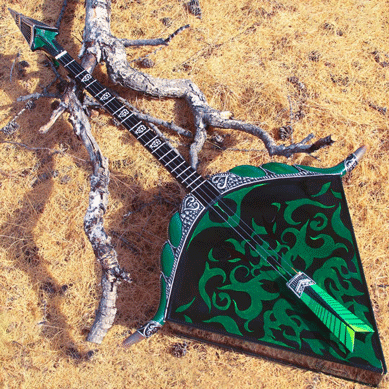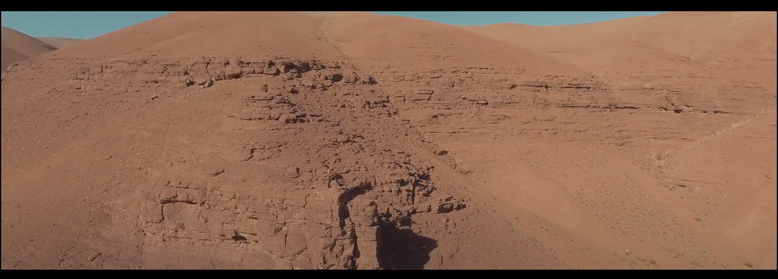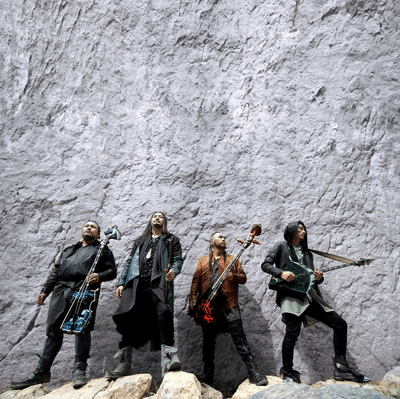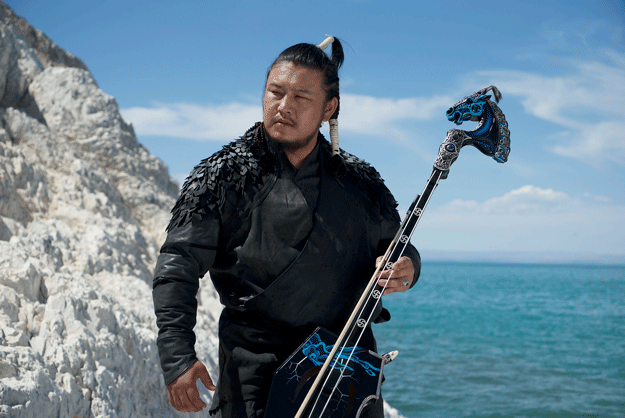Mongolia is a country filled with vast, untouched wilderness and a wide variety of native wildlife. The country is inhabited by 3 million people with anywhere from 25%-40% of these people being nomadic. The culture is rich in tradition including their values, their art and their literature. But it is their music that stands out among the rest with its traditional elements of throat-singing, an instrument called the Tovshuur - which is much like a 2 to 3 string fiddle - and the horse-head fiddle called the Morin Khuur.

The HU is one of the most notable contemporary bands from Mongolia, and while they are classified as heavy metal, their style is rooted in the musical traditions of their country. This includes the use of a Morin Khuur and Tovshuur as well as the vocals utilizing the technique of throat-singing.
Yuve Yuve Yu is a song released by The HU on September 28th, 2018 that is not only catchy with its tune and Mongolian traditional charm but lyrically dives deep into the current affairs of Mongolia. The entirety of the lyrics combined with the visuals of the music video focuses on the poverty of the population of Mongolia as well as the destruction of the environment due to mining.

The lyrics also talk about the insecurities of modernizing a country that has relied on its ancient traditions for centuries. All of these bring awareness to the country of Mongolia as well as supporting several of the United Nations Sustainable Goals (SDGs) including Goal 1 on eliminating poverty and Goal 15 on life on the land.
The music video begins with the members of the band living their modern lives; watching tv, playing video games, sleeping in etc. when all of them are suddenly transported to the vast beauty that is the untouched wilderness of Mongolia. The extremely widescreen format of the music video allows for stunning visuals of the members spread out among the landscapes. Each of them dressed in traditional clothing and hairstyles with a modern flare.

However, the lyrics are what catch the attention of any listener. Of course, The HU performs in Mongolian, but translations of the lyrics are easily found on the music video. “Yuve Yuve Yu” means, “How strange, How strange”. When paired with the rest of the lyrics that are discussing the slow decline of the Mongolian Empire, such as “Why is it so difficult to rise our nation up?”, and the desire to regain their past greatness, the phrase takes on a sarcastic tone.
There is mention of “Lord Chinggis declares his name on Earth. Would come back. Will come back.”. Lord Chinggis is more commonly known throughout the world as Genghis Khan, the founder of the Great Khan (Emperor) of the Mongol Empire by uniting the nomadic plains of Mongolia. Lord Chinggis, or Genghis Khan, was one of the most prolific rulers and conquerors of the ancient world. Because of him, the Mongolian Empire was one of the strongest for many years, even after his death.

The HU not only recalls their ancient ruler but discusses the “priceless edifications of elders turning to ashes” and questions why it has become so hard to “cherish the Ancestor’s inherited land”.. The HU sees their traditions crumbling due to the modernization of Mongolia, leaving them to wonder why, and what will happen once these traditions and memories of the past fade.
“Born to live as nobles yet can’t unite as one,” reiterates the lyrics.
With their history and their ancestry, The HU rightfully believes their people deserve better than the poverty they are suffering. The country was once united and prosperous, working together to strive for success and to continue the ancient ways, but now The HU see the people of Mongolia as lacking in support for one another.
Finally, “Oh Black Banner, be awakened, be awakened” is in reference to one of the two Spirit Banners Genghis Kahn had made. The White Banner was said to represent peacetime, while The Black Banner was said to be for guidance in war. While the White Banner didn’t survive history, it is said that the Black Banner did and was worshipped for centuries by the Mongols.
In the case of The HU’s lyrics, they are referring to the Black Banner as this is a time of war to take back the history and the traditions of the past. To not allow for the current government to wipe away all the history of their great nation.
The HU’s stunning Music Video for Yuve Yuve Yu can be found here. However, their music and the newest album can be found on Spotify as well as their website. To learn more about The HU and the members of the band, subscribe to their YouTube channel to see their newest content.
